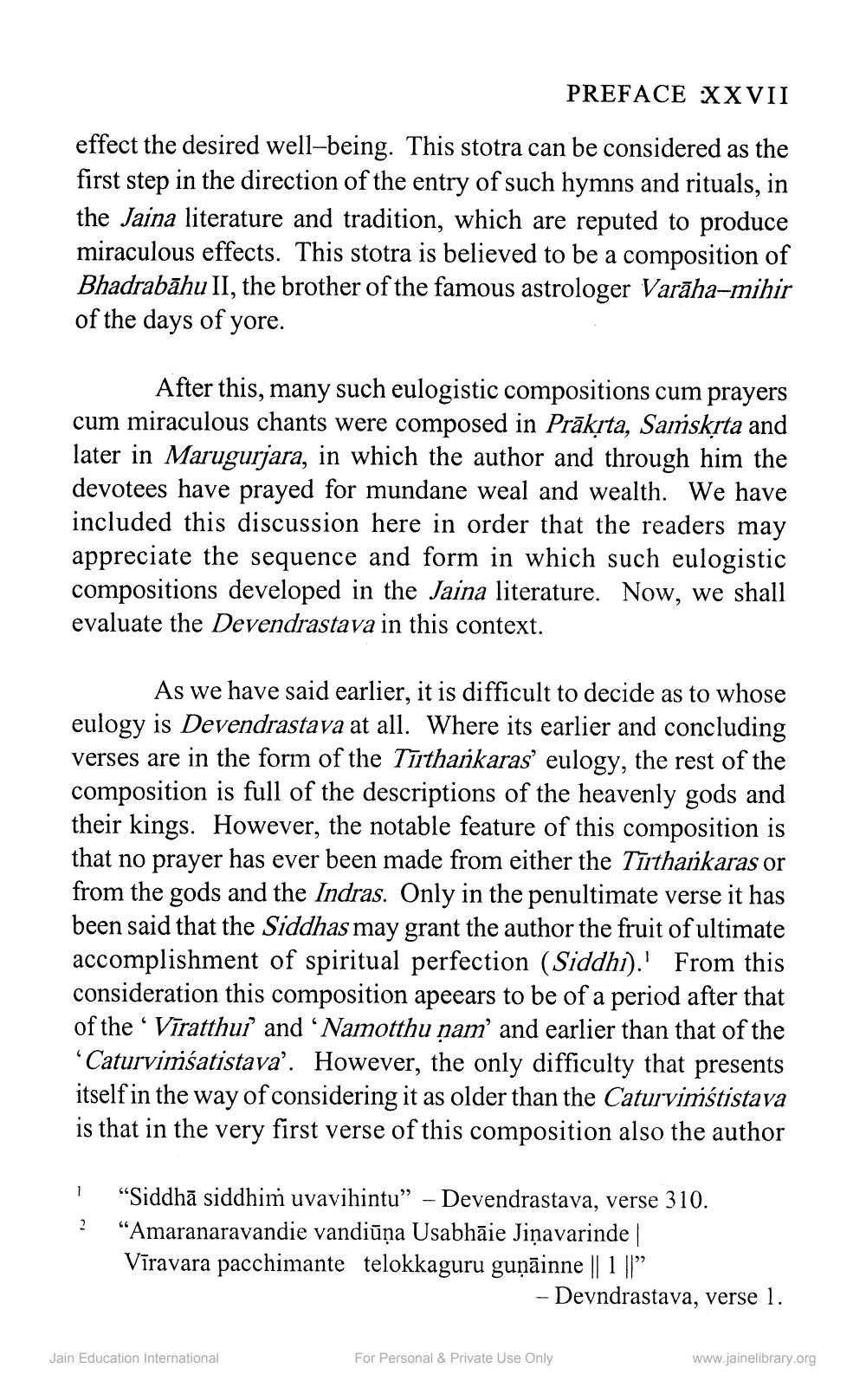________________
PREFACE :XXVII
effect the desired well-being. This stotra can be considered as the first step in the direction of the entry of such hymns and rituals, in the Jaina literature and tradition, which are reputed to produce miraculous effects. This stotra is believed to be a composition of
Bhadrabāhu II, the brother of the famous astrologer Varāha-mihir of the days of yore.
After this, many such eulogistic compositions cum prayers cum miraculous chants were composed in Prākīta, Samskrta and later in Marugurjara, in which the author and through him the devotees have prayed for mundane weal and wealth. We have included this discussion here in order that the readers may appreciate the sequence and form in which such eulogistic compositions developed in the Jaina literature. Now, we shall evaluate the Devendrastava in this context.
As we have said earlier, it is difficult to decide as to whose eulogy is Devendrastava at all. Where its earlier and concluding verses are in the form of the Tīrthankaras' eulogy, the rest of the composition is full of the descriptions of the heavenly gods and their kings. However, the notable feature of this composition is that no prayer has ever been made from either the Tīrtharkaras or from the gods and the Indras. Only in the penultimate verse it has been said that the Siddhas may grant the author the fruit of ultimate accomplishment of spiritual perfection (Siddhi).' From this consideration this composition apeears to be of a period after that of the Vīratthui' and 'Namotthu nam' and earlier than that of the 'Caturvimśatistava'. However, the only difficulty that presents itself in the way of considering it as older than the Caturvimśtistava is that in the very first verse of this composition also the author
I ?
“Siddhā siddhim uvavihintu” – Devendrastava, verse 310. “Amaranaravandie vandiāņa Usabhāie Jiņavarinde Vīravara pacchimante telokkaguru guņāinne || 1 ||”
- Devndrastava, verse 1.
Jain Education International
For Personal & Private Use Only
www.jainelibrary.org




